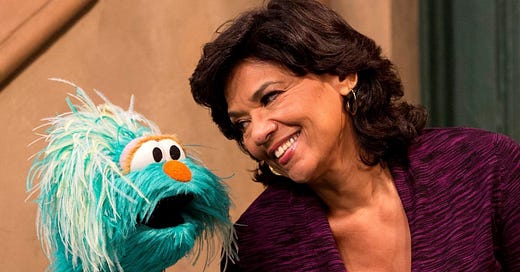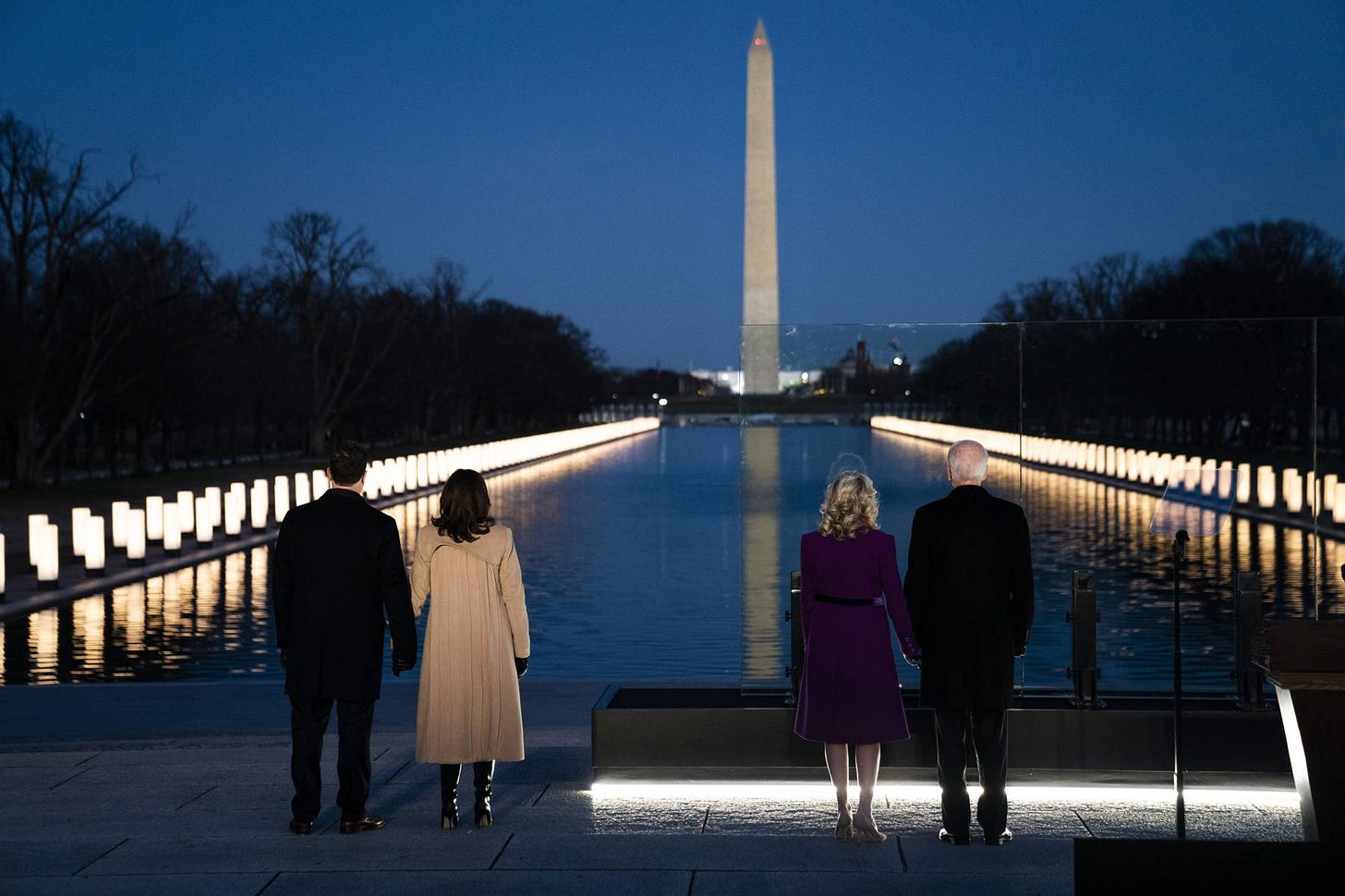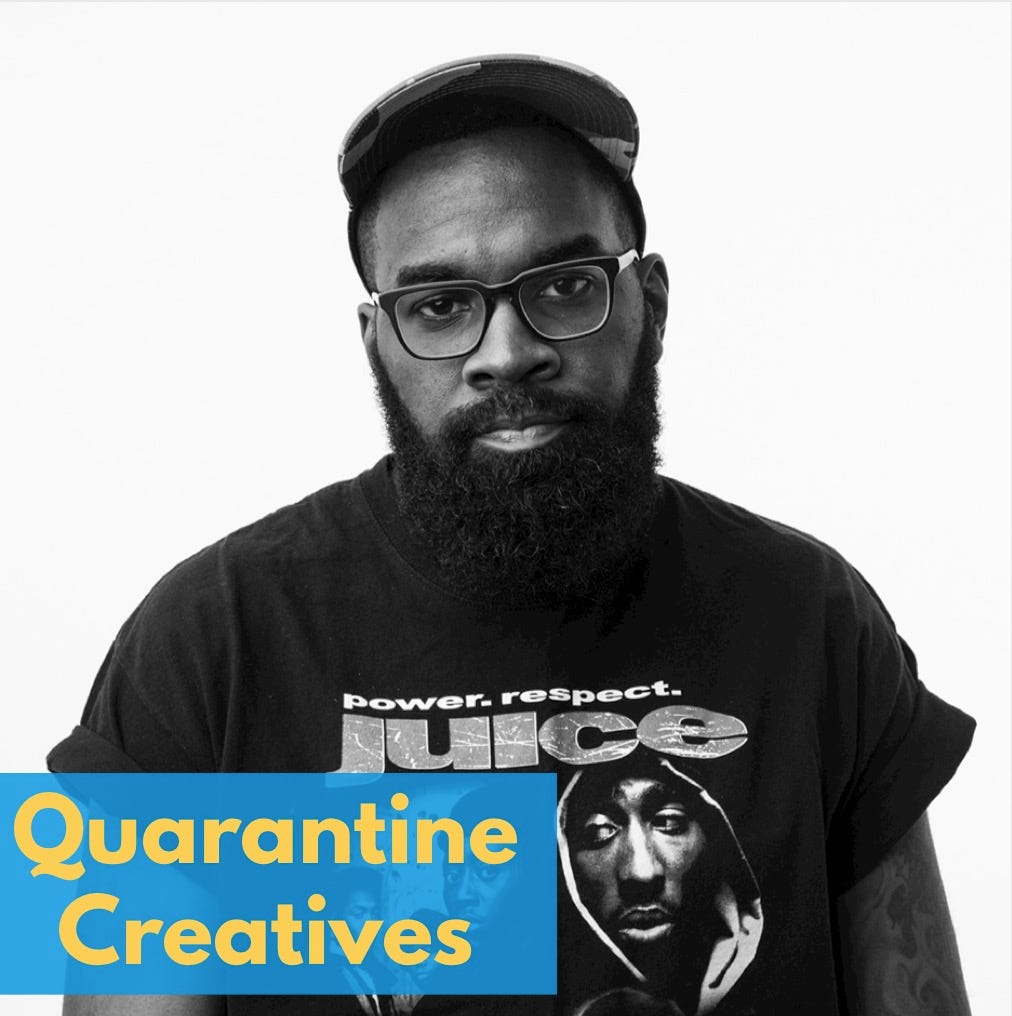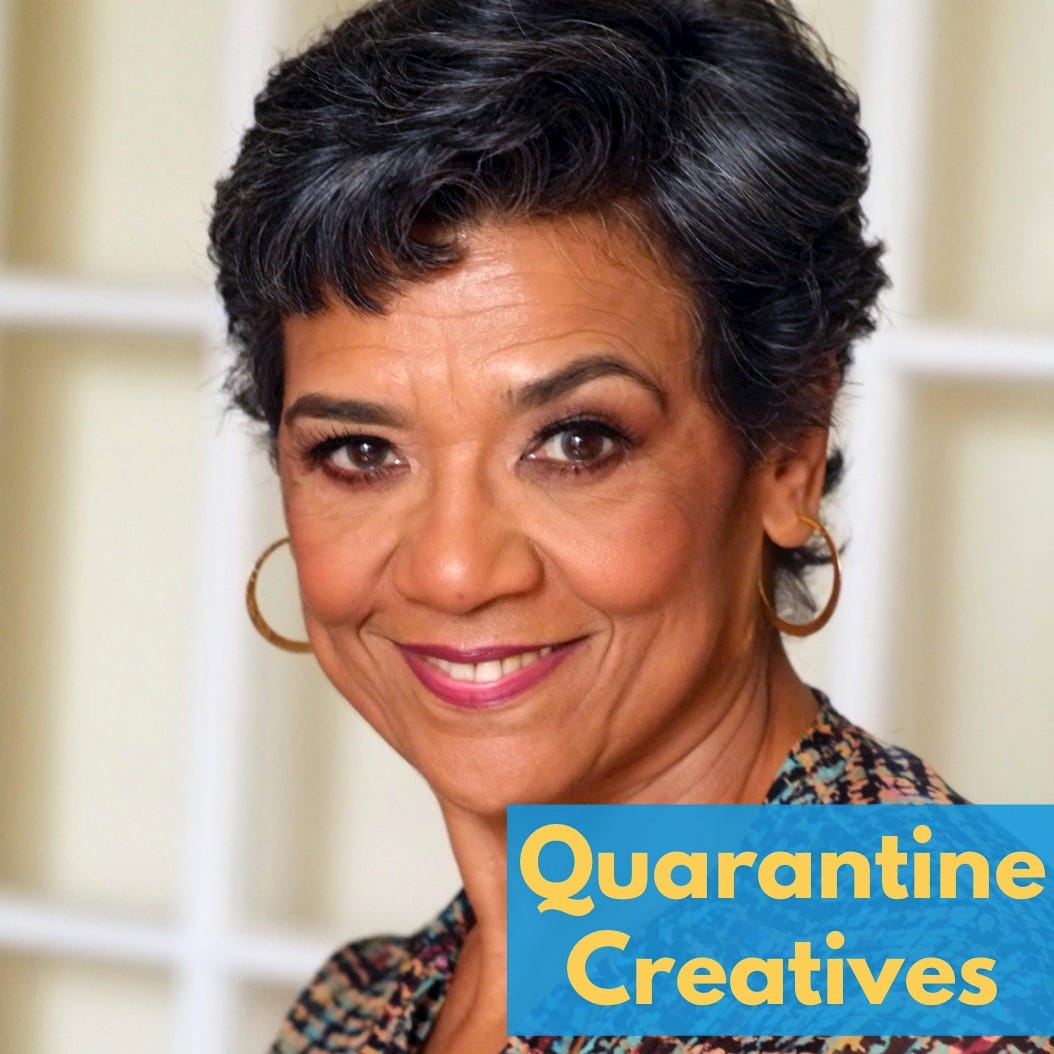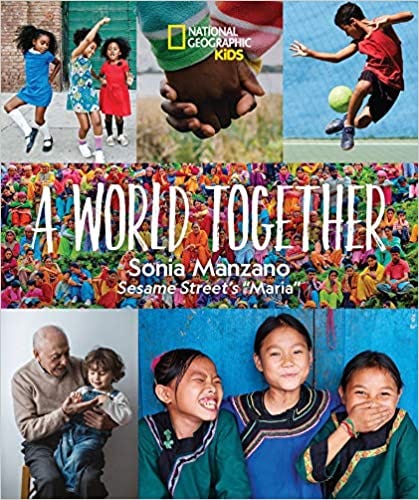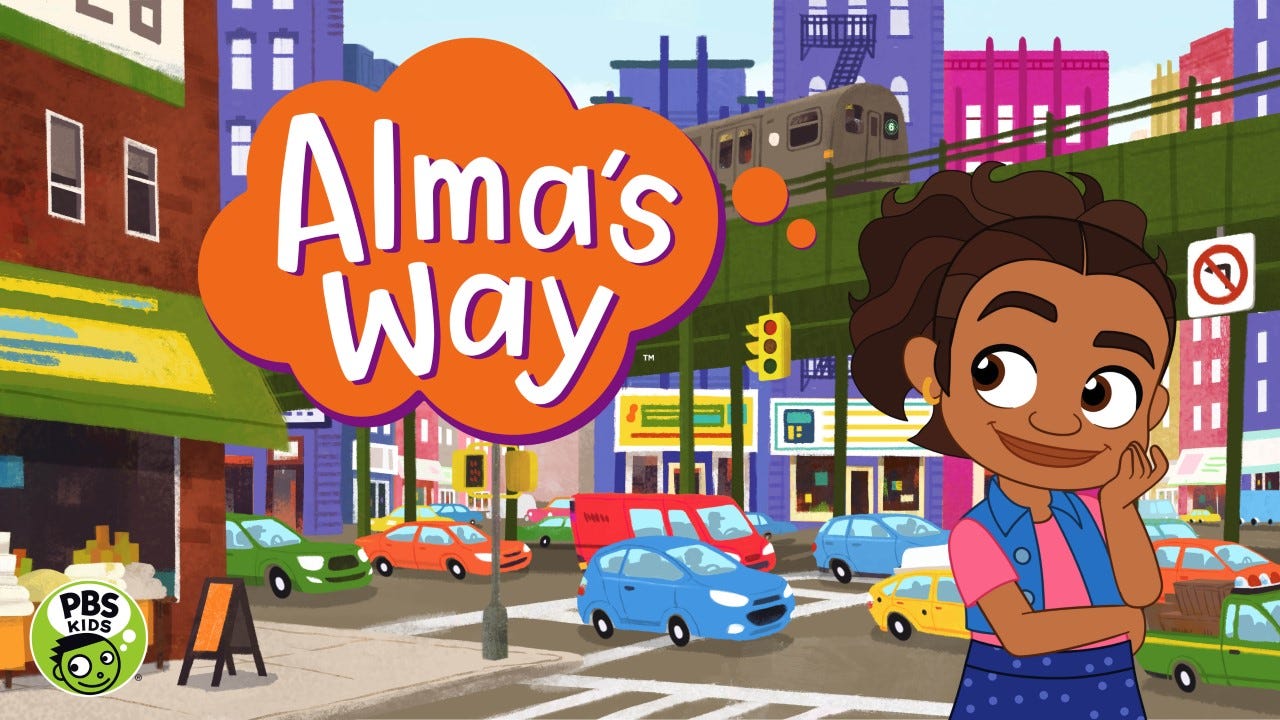Welcome to the Quarantine Creatives newsletter, a companion to my podcast of the same name. This newsletter is sent directly to inboxes every Sunday. If you like what you read here and you aren’t yet on the list, you can subscribe for free:
A Time to Heal
Last week was full of emotions in so many ways. There was relief to know that the former president no longer had access to the nuclear codes. Joy and hope seeing Kamala Harris inaugurated as the first Black, South Asian, female Vice President. Pride and patriotism listening to Amanda Gorman’s stirring poem.
However, the feeling that has stuck with me the longest is grief. Joe Biden understands grief at a deep level, and watching him mark the lives of the more than 400,000 people that have been lost in this country to COVID-19 was very moving. This is the first time that we have seen a leader grapple with the scale of this sorrow, and it really resonated.
I hope that by acknowledging the full spectrum of emotions that we have felt during this pandemic, and for that matter, the last four years, we can begin the process of healing. I did not recognize until last week how much I have been living off adrenaline in a kind of survival mode during this period. It has felt good to exhale and begin to reclaim myself, my community, and our country.
Episode 70- Ray Smiling
On Monday, I had a really fun conversation with director Ray Smiling. In the early days of the pandemic, Ray and his friend Konyin Ayuba were discussing how lockdowns were affecting dating, which seemed like a topic worth exploring to them:
“You can’t jump on Tinder, you can’t go out to a bar. Even if you have somebody that you’re seeing, you’re kind of scared to get in a Lyft and go over to somebody’s house because what if they’ve got it? So what would be the next closest thing that you can get? And cam girls or cam boys came to mind as like the closest approximation that you could get. And so that world became a very interesting medium for us.”
They ended up creating a series of six short films titled Khaki Is Not Leather, which use sex and remote connection as a device to tell some larger stories about society during the last several months. Ray’s day job is as a creative director for an ad agency, and he talked about how that experience has taught him that sex sells:
“Most people don’t want to just watch a philosophical discussion of the existential pain and suffering they’re experiencing right now. That’s not fun. That’s not a good headline to spread around. But if you add sex onto things, then people are either immediately interested or immediately revolted, but at least they’re curious. You’ve at least you’ve got their attention.”
Here’s the trailer for the series, which is sensual, though not explicit:
One of the biggest topics of conversation on my podcast over these last few months has been the role of technology during the pandemic. It has allowed for remote work of all kinds, including writing, shooting live action TV shows, animating, and even just staying connected. Ray and I also discussed how technology has influenced dating, not just during the pandemic, but really over the last decade or so:
“Technology, specifically when it comes to dating and sex, it enabled all of us to be 100% ourselves, because you’re doing it all from the comfort of your home. No one sees what you put in that little search engine. To a degree, you can be so much braver and emboldened. If you’re going to go on Tinder and you want to say some wild stuff to a person that you’re potentially going to date, or if you want to be wildly vulnerable. Both of those things are so much easier when it’s just text on a screen, where as if you and me are just sitting across from each other at a table, if I have to say something super vulnerable, I hesitate. I worry what’s your response going to be.”
Ray and I also discussed the challenge of creating new content, especially high quality short form like he’s done, when there is so much content being uploaded to the internet every second competing for attention. He made a deliberate choice to tell these stories as three to six minute anthology stories, rather than try to bundle them into a longer package or try to tell one single, longer story, and he explained why:
“You’re competing with literally everything that has ever been recorded, be it music, podcasts, film, TV, cartoons, some dude getting hit in the balls with a football. And so for me, keeping it short guarantees to a certain degree that I can vie for your attention, but I can’t let go of quality, I can’t let go of intention. I don’t feel like I’m really having a strong authorial voice if I’m just spamming the world with stuff.”
We also had a really interesting talk about the challenge of when to release your work into the world as a creator. It is never really finished in your own mind, and if there isn’t a deadline imposed by an external force (a boss, a company, a network), it can be tempting to continue to tweak in tiny ways forever. Ray told me his thoughts on this:
“I think perfectionism is a thing that is common among creators, artists, however you want to phrase it. But when I take a step back, I realize that’s also a crutch to a degree because you’re afraid that you’re going to put the thing out, people are going to laugh at it, or no one's going to pay attention to it. So if I only refine it a little bit more, no one will ever laugh at me, no one will find a thing in the frame.”
The full interview is a really great listen, as we also go deep into the remote production techniques that were used in Khaki Is Not Leather. This included remote wardrobe fittings, having a production designer send props and set dressing for a space that had only been seen through Zoom, innovative means for capturing performance remotely, and how the footage was treated to allow for more options in post. You can also watch the entire series online in about a half an hour. Check it out!
Episode 71- Sonia Manzano
On Thursday’s show, I had the incredible honor of getting to chat with Sonia Manzano. She played Maria on Sesame Street for more than 40 years. She also served as a writer on the series, where she won 15 Emmy awards, including a Lifetime Achievement award in 2016.
Sonia’s new children’s book is called A World Together. She was approached by National Geographic, which published the book, with the idea of writing a book about diversity. She hit upon the idea of exploring our shared humanity in a simple way. I mentioned to Sonia that the idea of looking at what we have in common can seem like a bold idea in this era where differences are being exploited and weaponized. She told me her perspective on how progress ebbs and flows:
“It proves that you think that you’ve solved the problem in one generation and it’s not true. You have to keep re-solving it. Each coming generation often has to solve the same problems. I think it’s just more insidious racism than I thought, than many thought, existed in our society.”
I loved reading this book with my seven and four year old children. The prose is quite simple, which makes the topic very accessible. The accompanying photographs are incredibly vivid and each tell their own stories, which invited discussion far beyond the text. Sonia explained to me the challenge of writing in a way that can be engaging to all ages, while still holding the attention of the youngest people:
“That’s the Sesame Street message, that you take complex issues and simplify them so that a preschooler or a very young person can understand. And I really enjoy the process of getting the words down as pithy as possible to just really say exactly what I mean without using any big words and using very short sentences.”
At the end of the book, Sonia discusses growing up curious about photos of her mother and sister’s lives in Puerto Rico before her family moved to New York. She described the mixed messages that she received about the island as a child:
“I was born in the States and only knew about Puerto Rico from what my parents said about it Friday afternoons after work is when they would sit around and talk about Puerto Rico. And it was a little bit more confusing because they would say the most terrible things about escaping the most awful poverty. Things that as an American, or as someone in the Mainland, was foreign to me. Kids that are hungry, I didn’t see that. But they used to talk about escaping that kind of environment and I’d think ‘oh what a terrible place, Puerto Rico.’ And then they’d sing beautiful songs about the island, about the environment, and love stories and I’d think ‘oh what a wonderful place it is, but which is it, is it a wonderful place or a terrible place?’ So I had those conflicting feelings about Puerto Rico, and it wasn’t until you get older that you realize it can be both, a wonderful place and a place that people escape from.”
Of course, we discussed Sonia’s time at Sesame Street. She joined the cast in 1971, but she remembered being affected by the show when she first noticed it in the Carnegie Mellon student union when it launched in 1969:
“[I was] absolutely stunned when Susan and Gordon came on because in 1969, believe it or not, you never saw people of color on television. You did begin to feel invisible as a kid, I felt invisible. I didn’t know what I was going to grow up to be. If you don’t see it, you can’t be it. And the street, it was an urban environment. You didn’t see cities, unless it was a cop show. It was like kids didn’t live in cities.”
Sonia also discussed some of the lessons that she had to learn in her early years in the cast. She had been a stage actor before joining Sesame Street, so performing for the camera took some time to learn. An even bigger challenge was finding the right balance when working alongside Muppets:
“You couldn’t compete with them as far as performance or humor went. You can’t compete with an entity that can be thrown across a room and still come up with a line. I mean, they’re bigger than you. And so when I realized that I was the straight man and they were the comics, I clicked.”
Even though Sonia retired from Sesame Street in 2015, she is not out of children’s programming. She is currently in production with Fred Rogers Productions on a new series for PBS Kids called Alma’s Way, which will premiere this fall. Sonia described the premise of the show to me:
“It’s about thinking. My idea was to remind kids that they have a brain and they can think of things on their own. It’s not just about memorizing information that adults might tell you, but that you can put two and two together yourself. And it takes place in the Bronx because it’s based kind of loosely on my Bronx experiences.”
There’s a lot more in the full interview about Sonia’s amazing new book, her time at Sesame Street, and her relationship to Puerto Rico. Take a listen- it will make you smile!
What’s Coming…
On Monday, I will be talking to Paul Rugg. He stars in the Disney+/Jim Henson series Earth to Ned as the voice of alien talk show host Ned. His descriptions about the complex puppetry on that show are really cool. He has also been an animation writer and voice actor for many years, working on classic shows like Animaniancs and Freakazoid, and we chat about that time, including collaborating with Steven Spielberg!
On Thursday, I have a conversation with Paul Sun-Hyung Lee. He stars on the amazing CBC show Kim’s Convenience about a Korean family that immigrated to Toronto. My wife and I discovered it during the pandemic, as it streams on Netflix in the US. Paul and the cast were back in production for Season 5 of Kim’s last year, and Paul tells me all about the COVID protocols that were in place. He also talks about his role on The Mandalorian and his love of Star Wars cosplay.
If you have questions, comments, thoughts, ideas, or anything else that you’d like to share, please feel free to email me anytime: hracela@mac.com
If you’re an Apple Podcasts user, please consider leaving a rating or review for Quarantine Creatives. It only takes a minute, but it helps bring in new listeners.
And please consider sharing this with a friend that you think might enjoy reading this, or better yet, share it on social media so you can tell hundreds of friends!
If you’ve missed past issues of this newsletter, they are available to read here.
Stay Safe!
Heath


